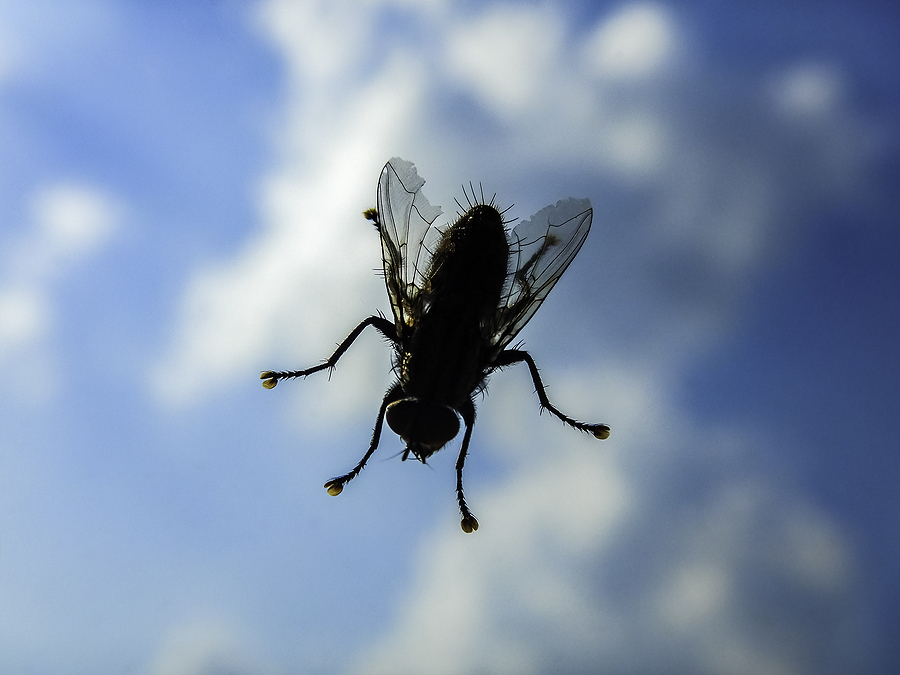Is A Fly Infestation Dangerous?
- Details

Flies are surely an annoying pest. Anyone who’s attended an outdoor gathering such as a picnic or cookout knows how relentless they can be. Even one or two flies buzzing around and landing on food will be irritating until you finally are able to swat them. Flies will find their way indoors too and bug you in your home. So is an infestation dangerous?
Flies are surely a major nuisance by disturbing people during work and at leisure. Flies also soil the inside and outside of houses with their feces. So yes, they are dangerous, especially in large numbers, mostly because of their ability to spread germs.
When you think of the most dangerous pests, the house fly probably isn’t one of the first that comes to mind. Instead, you probably think of a pest that stings, like a wasp or bee. It is true that flies rarely bite or sting, but the danger lies in the fact that they often land on dead animals, rotten food, manure, and trash. As flies frequent those places, they can pick up and spread diseases that are harmful to humans.
Think about that. Every disgusting place they land such as sewers, garbage heaps, and fecal matter, are bacteria-ridden. Flies most certainly carry these unseen bacteria around on their bodies as they land on other objects - like your food.
Their bodies have tiny hairs and those hairs pick up microscopic matter while crawling and feeding. Those germs that stick to the outside surfaces of the fly may survive for only a few hours, but those that are ingested by the fly may survive in the fly’s crop or gut for several days. Transmission takes place when the fly makes contact with people or their food, sometimes a fly will even end up in your food.
Of course many pests can spread bacteria, viruses, and disease but flies are amongst the most concerning. According to this study by Penn State, it is suspected that house flies carry even more diseases than previously suspected. It’s important to note that there is one species of fly called the cluster fly that is not as much of a health risk because they do not lay eggs in human food. However, a large gathering of cluster flies near a window or on a warm indoor wall can still be an annoyance. This species can be distinguished from the common house fly by their sluggish flight pattern.
So how do you enjoy outdoor activities without risking exposure to these bacteria carrying insects? There are some steps to take that can help. When enjoying the outdoors choose an area that is not as exposed and away from public trash receptacles. Set up a portable screened tent room to enjoy your food without the nuisance of insects.
Some repellants work to minimize the number of flies that will be drawn to your outdoor activity areas. Citronella candles and even a campfire will deter flies. If it’s a breezy day and not too hot flies are typically less active. Keep your food covered and don’t consume food that’s been left uncovered or has been seen with flies. You can enjoy outdoor activities and avoid the risks of contamination by these insects if you are proactive.
If you suspect there’s a fly infestation in your home or exterior areas contact Eagle Pest Services for a no-obligation estimate.





